Keynote speeches
Knowledge, Self, & the Globalized World in 21st Century General Education
As Samuel Johnson, the first president of Columbia University originally called King’s College), announced in 1754, the mission was to lead the students “from the study of nature to the knowledge of themselves, and of the God of nature, and their duty to Him, themselves, and one another, and everything that can contribute to their true happiness, both here and hereafter.” In his 1950 address at the University of Copenhagen, Winston Churchill said: “The first duty of a university is to teach wisdom, not to train, and to confirm character and not impart technicalities. We want a lot of engineers, but we do not want a world of engineers. We want some scientists, but we must make sure that science is our servant and not our master.” Churchill recognized, as he said at a similar address in 1948 in Oslo, Norway, “we must all learn to support ourselves, but we must also learn how to live.” Today, colleges and universities that have maintained historically or newly adopt core curricula appreciate, as Churchill did, that scientific and technical expertise needs to be balanced by a study of history, philosophy, literature, and the arts, and acknowledge what Johnson recognized centuries ago, the intimate connection between nature and humanity, between the research mission of a university and the individual and shared humanity of those who teach and study in it. Through reference to Columbia College’s Core Curriculum and its aims and goals (especially Literature Humanities, Contemporary Civilization and Global Core courses), and some video examples of two core courses, this talk considers the nature and role of core curricula, arguing for the continuing relevance of Johnson and Churchill’s viewpoints in the 21st century, and, indeed, for such core courses as an imperative in today’s globalized world.
Biography
Patricia Grieve is Chairperson of the Global Core Requirement of the Core Curriculum of the Columbia University and Nancy and Jeffrey Marcus Professor in the Humanities. From the Department of Latin American and Iberian Cultures, she has received several grants from the National Endowment for the Humanities as well as the Spanish Ministry of Culture. Her research focuses on the transformation through the centuries of Middle Eastern myths and tales into the basis for religious and literary works in Western Europe, and the role that stories and storytelling play in shaping and reflecting cultures, especially in Spain, England, Italy and France, in medieval and early modern short fiction, hagiography, romance, ballads, folktales, historiography, and the works of Cervantes. Grieve has written several books that explore topics such as Spanish Romance and religious conflict in Spain. She received Columbia’s Distinguished Service to the Core Curriculum Award in 2006. Grieve is a 2015 Public Voices Initiative Fellow as part of the national OpEd Project.
The New Path for Integrating General Education and Life Education in the 21st Century
Chinese version only
本文主旨在於論述通識教育與生命教育融合是二十一世紀教育最重要的新主流之一,並建議以通識教育與生命教育的融合,因應二十一世紀人類面臨之三大問題:( 1 )「自我」之迷惘與意義感之失落問題,(2) 傳統文化之斷裂與歷史感之流失問題,(3) 環境巨變與人類永續發展之問題。
本文首先指出二十一世紀之主要趨勢是全球化潮流之迅速發展及其問題,與亞洲政經實力之崛起及其隱憂。本文接著論證:在二十一世紀兩大發展潮流激蕩之下,通識教育與生命教育的的融合,必須聚焦於三個新方向:( 1 )「心靈覺醒」教育,(2) 經典閱讀教育,(3) 環境素養教育。這三種通識教育與生命教育融合的新方向,均以文明的連續性而非斷裂性為其理論基礎,強調「自我」與「他者」之一體感,「過去」與「現在」之融合性,以及「人」與「自然」之整體性。
Biography
臺灣大學人文社會高等研究院院長、臺灣中央研究院中國文哲研究所合聘研究員兼東亞儒學研究計畫總主持人、臺灣大學講座教授,1996年至2000年擔任通識教育學會理事長,2005年起為該會名譽理事長。曾任東吳大學東吳通識講座教授及美國華盛頓大學、日本關西大學等校客座教授、新加坡儒家倫理小組顧問。主要研究領域為東亞思想史。
近二十年積極參與大學通識教育改革工作,每年主辦有關高等教育或通識教育之學術研討會,並出版《轉變中的大學通識教育:理念、現況與展望》(2006) 、《全球化時代大學通識教育的新挑戰》(2004)、《大學通識教育探索:臺灣經驗與啟示》 (2002)、《大學通識教育的理念與實踐》(1997),另編輯《二十一世紀大學教育的新展望》、《二十一世紀大學教育的新挑戰》、《大學理念與實踐》、《大學理念與校長遴選》等書。
近年獲得學術榮譽:教育部國家講座(2013-)、教育部學術獎(2011)、中華民國通識教育學會「通識教育終身貢獻榮譽獎」(2011)、教育部全國傑出通識教育教師獎(2010)、江丙坤兩岸交流「學術研究獎」(2014)。
Qualitative Narrative Assessment and Core Text Programs: Tracing the Impact of Assessment upon Humanistic, General Liberal Education
Qualitative assessment of higher education, as it is practiced in the 21st Century, is driven by modern ‘rankings’ of universities, a history of accreditation— particularly in the U.S.—and the ‘methodical’ development of assessment practices. Recognizing the need for statistical, empirical data, repeatedly, humanists— especially within general education, core text programs— nevertheless observe that current assessment has not captured the liberal learning that they believe they are imparting to students. The Association for Core Texts and Courses (ACTC) sought in 2010 to address this problem by joining with the Association for General and Liberal Studies to form a joint project of “Qualitative Narrative Assessment” (QNA). The project foregrounds narratives of curricula composed of core texts related to the learning by students of those programs and allows ‘signature’ liberal education, core text programs to identify goals and achievements inside and outside the commonly accepted objectives of higher education. This presentation traces the historical development of assessment and the concept and implementation of QNA as practiced in the first cohort of seven ACTC institutions and the projection of future developments in the second cohort, to which the General Education Program of the Chinese University of Hong Kong belongs.
Biography
J. Scott Lee is Executive Director (and cofounder) of the Association for Core Texts and Courses, an international professional liberal arts organization dedicated to the use of world classics in undergraduate education. Twice, between 1998 and 2004, he worked with the American Academy for Liberal Education, an accrediting agency for liberal education. He was principle investigator of the U.S. DOE-FIPSE-funded, longitudinal study, “Assessing Trends in the Liberal Arts Core,” and director of the National Endowment for the Humanities-funded curriculum development grants, “Bridging the Gap Between the Humanities and Sciences,” and “Wiping Away the Tears: Renewing Cherokee Culture and American History.” A practiced reviewer of over 40 college and university liberal arts programs, he has edited ten volumes on core text education, including, Tradition and Innovation and The Place of Core Texts. Lee earned his Ph.D. at the University of Chicago. His most recent papers include, “Core Texts and Core Curricula in General Education Programs” delivered at the Chinese Association for Liberal Education Conference in 2013, “Enriching Liberal Education’s Defense in Universities and Colleges: Liberal Arts, Innovation, and Technē,” forthcoming in the Fall 2014 St. John’s Review, and “Cultural Institutions, Theatre and Liberal Arts Education: Where Do We Go From Here?”, a plenary address delivered in 2014 at the Transylvania University Seminar on Liberal Education. His work with ACTC and AALE led him to conceive, develop, and supervise ACTC’s “Qualitative Narrative Assessment” project in its original and, now, second cohort.

